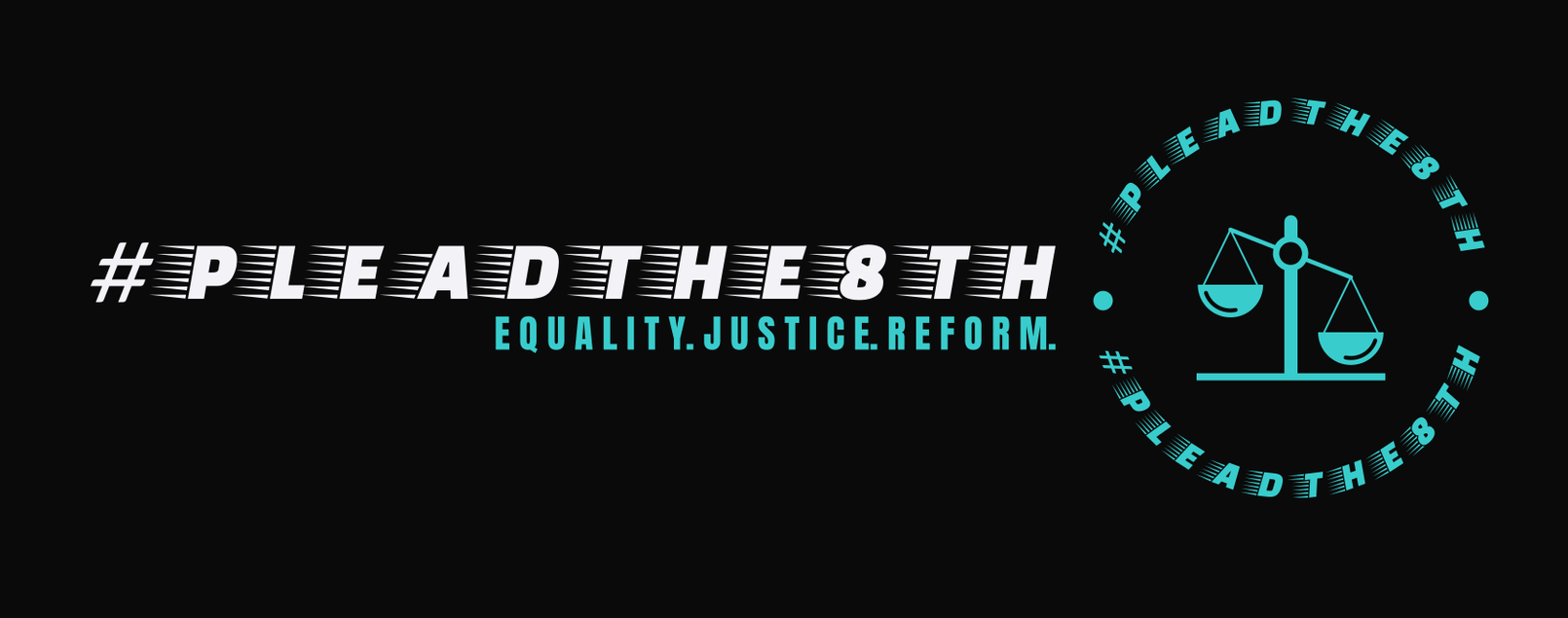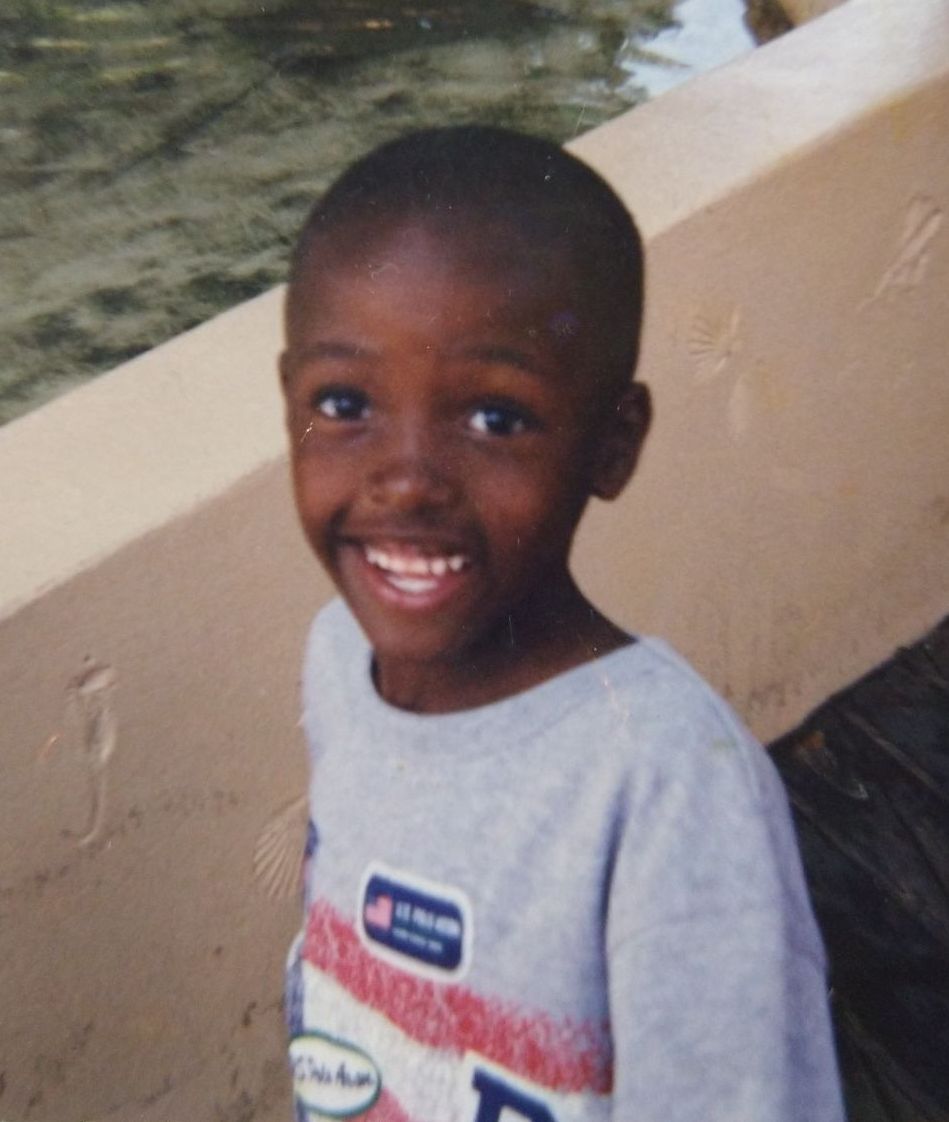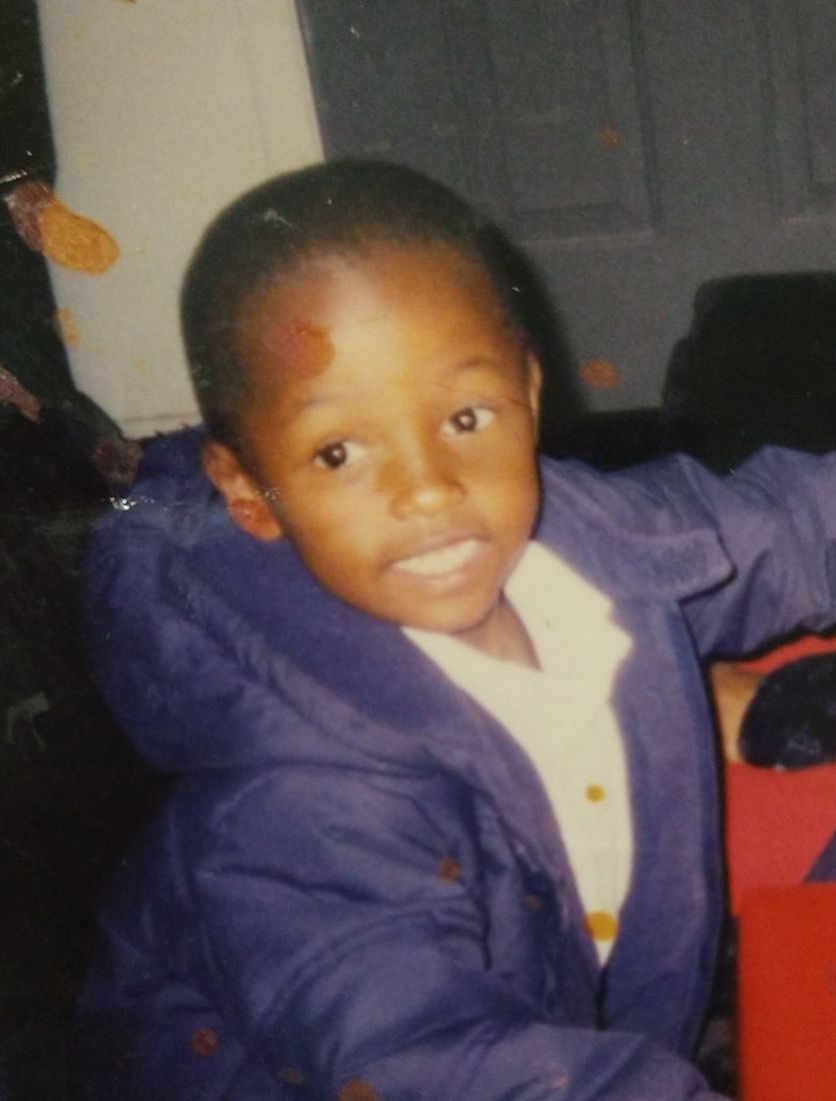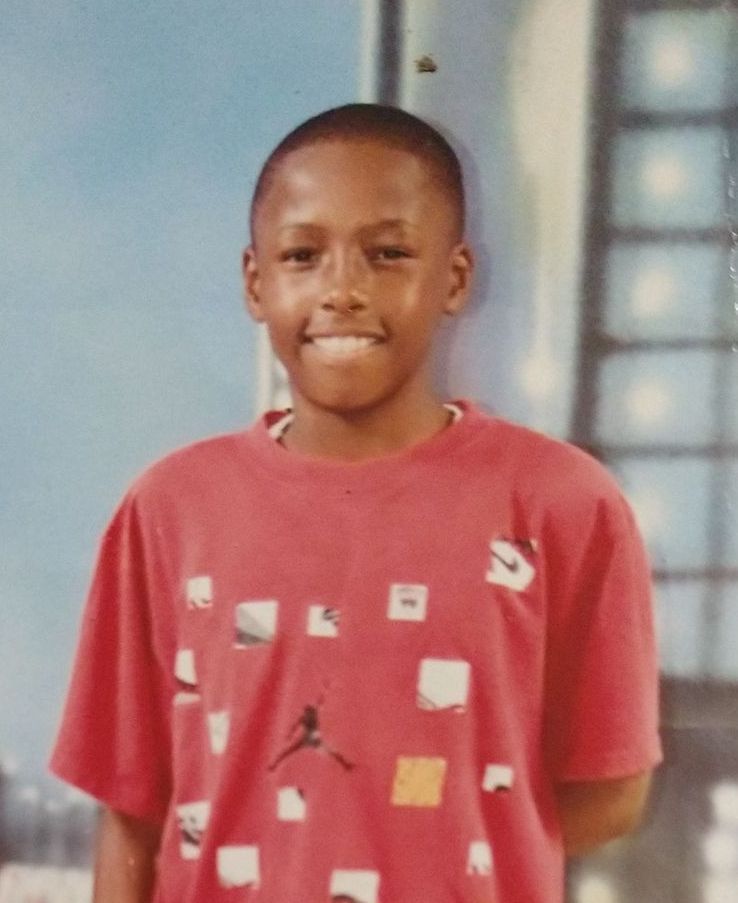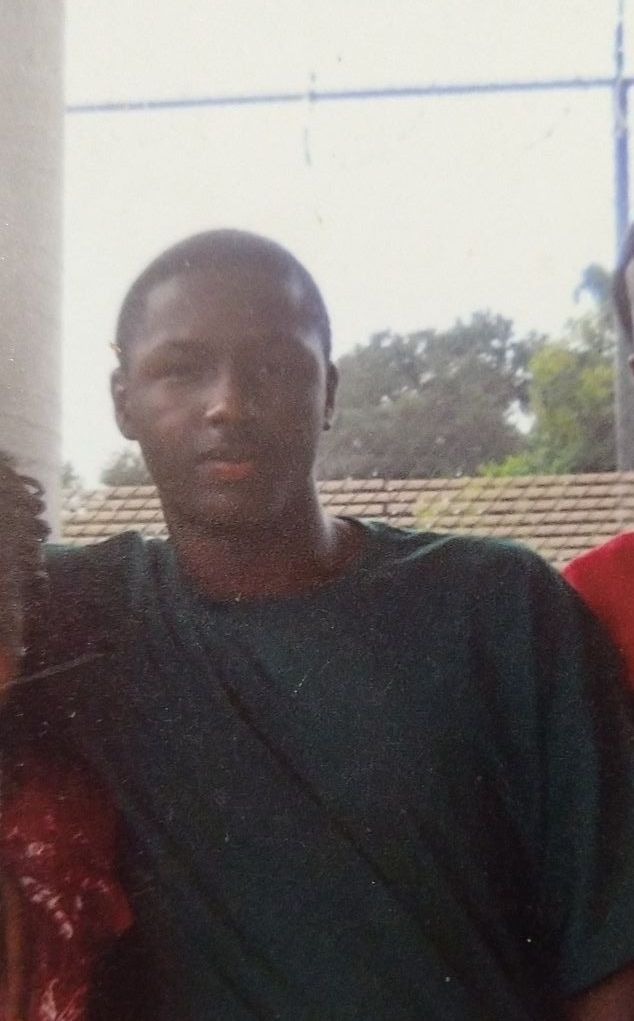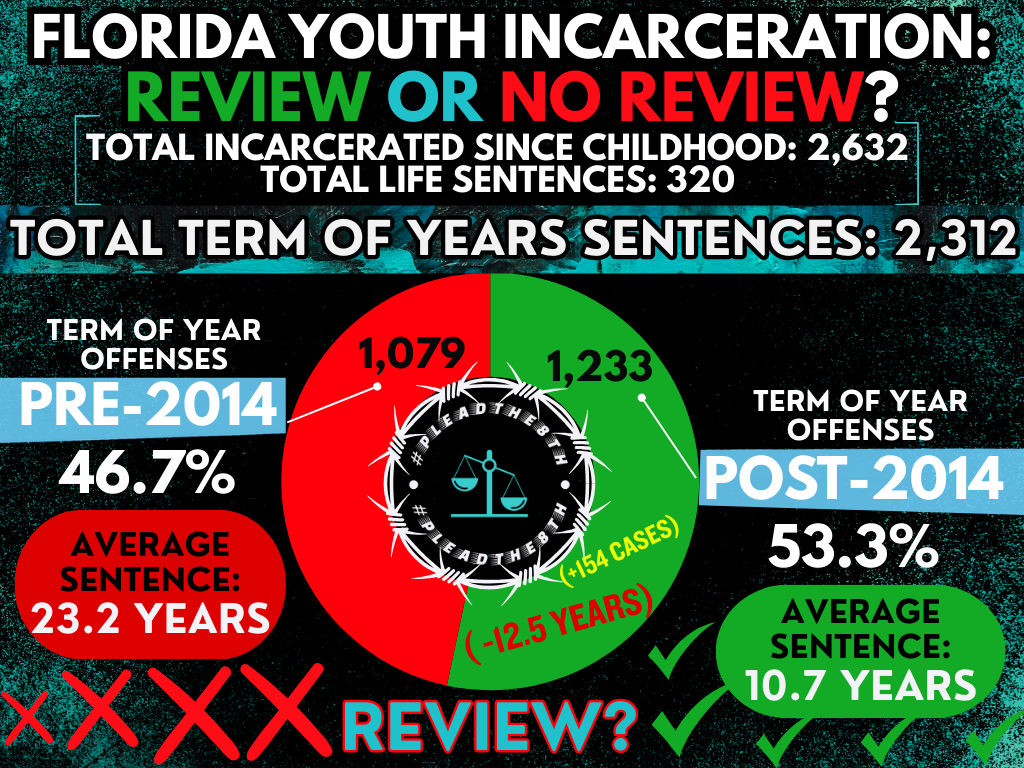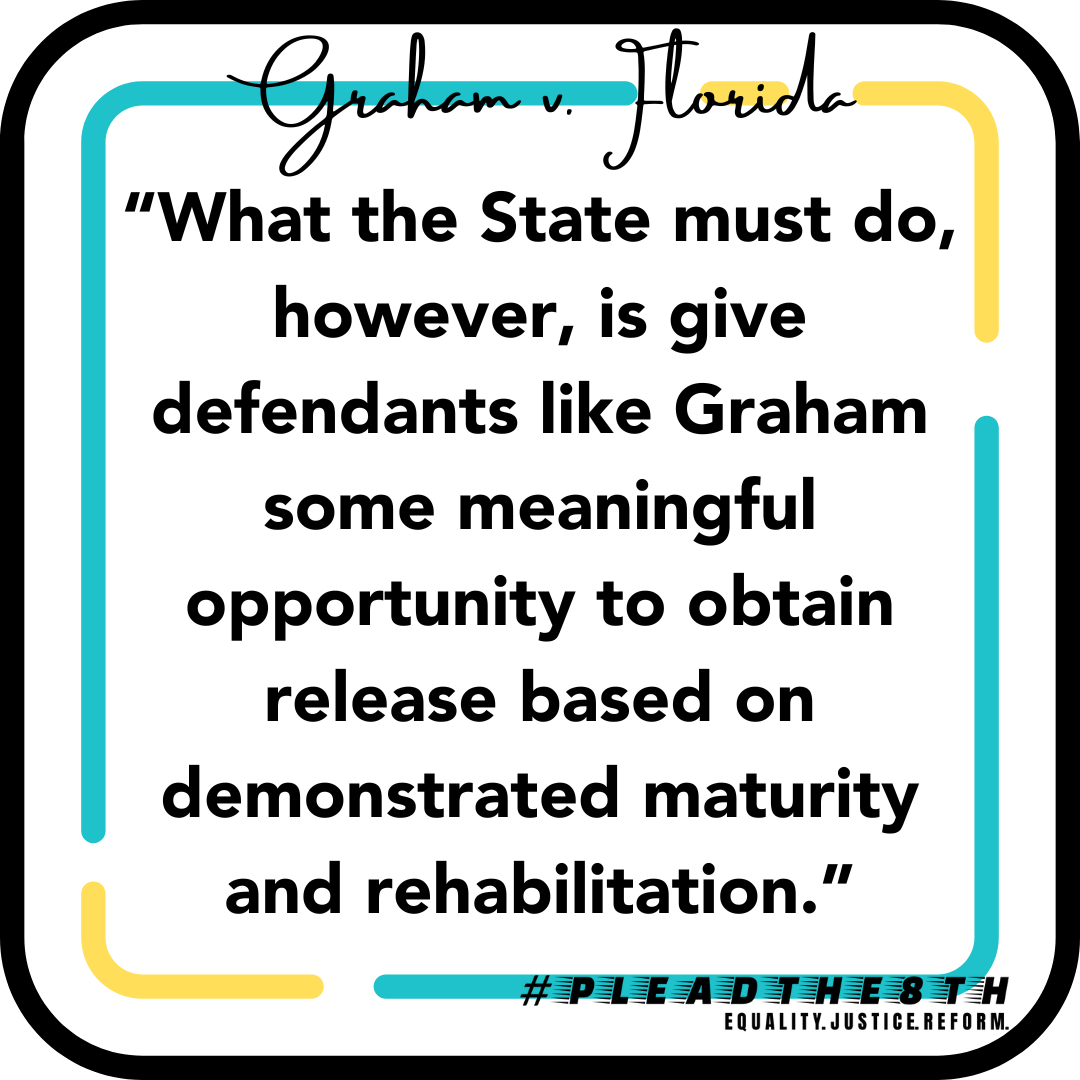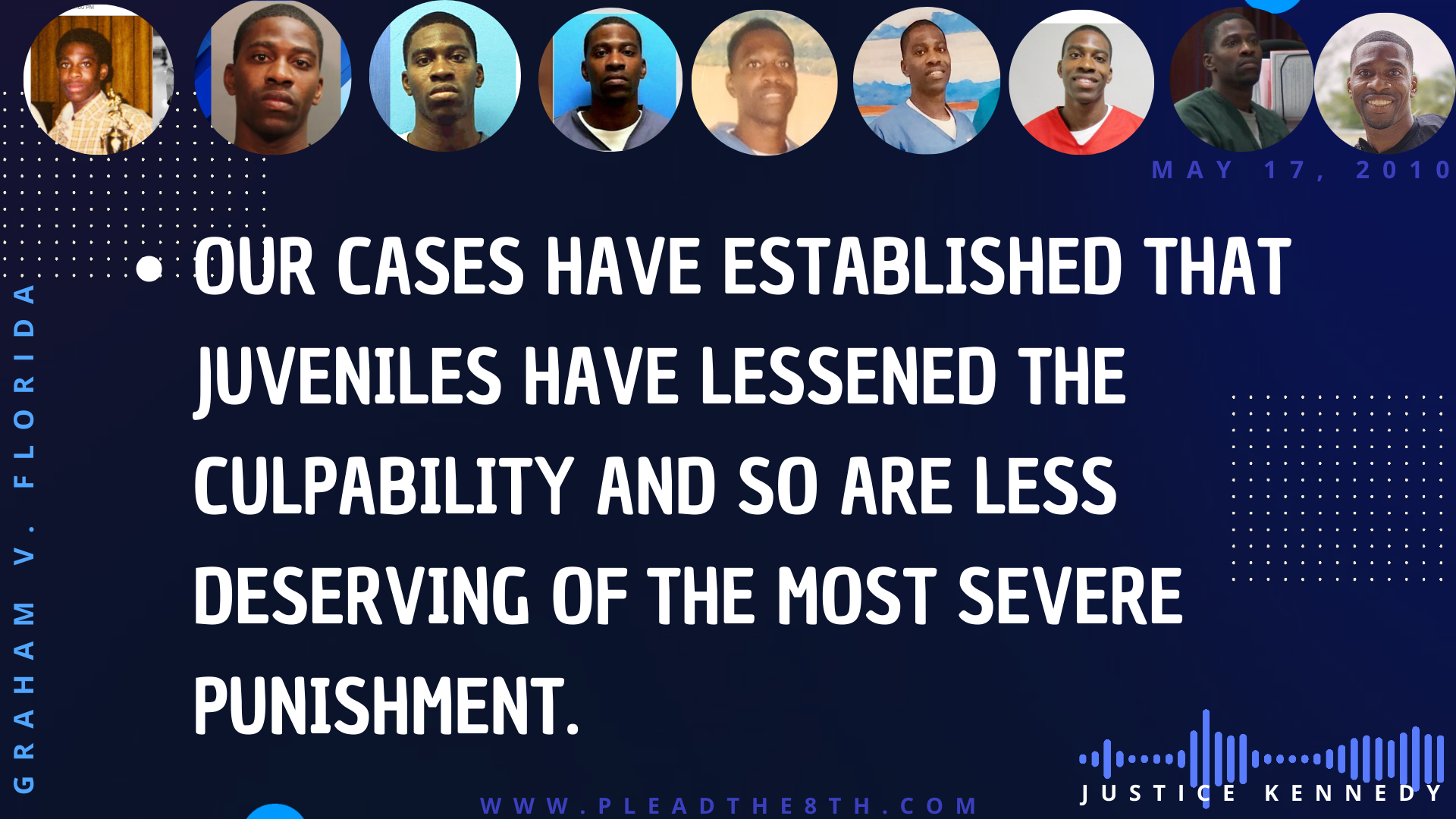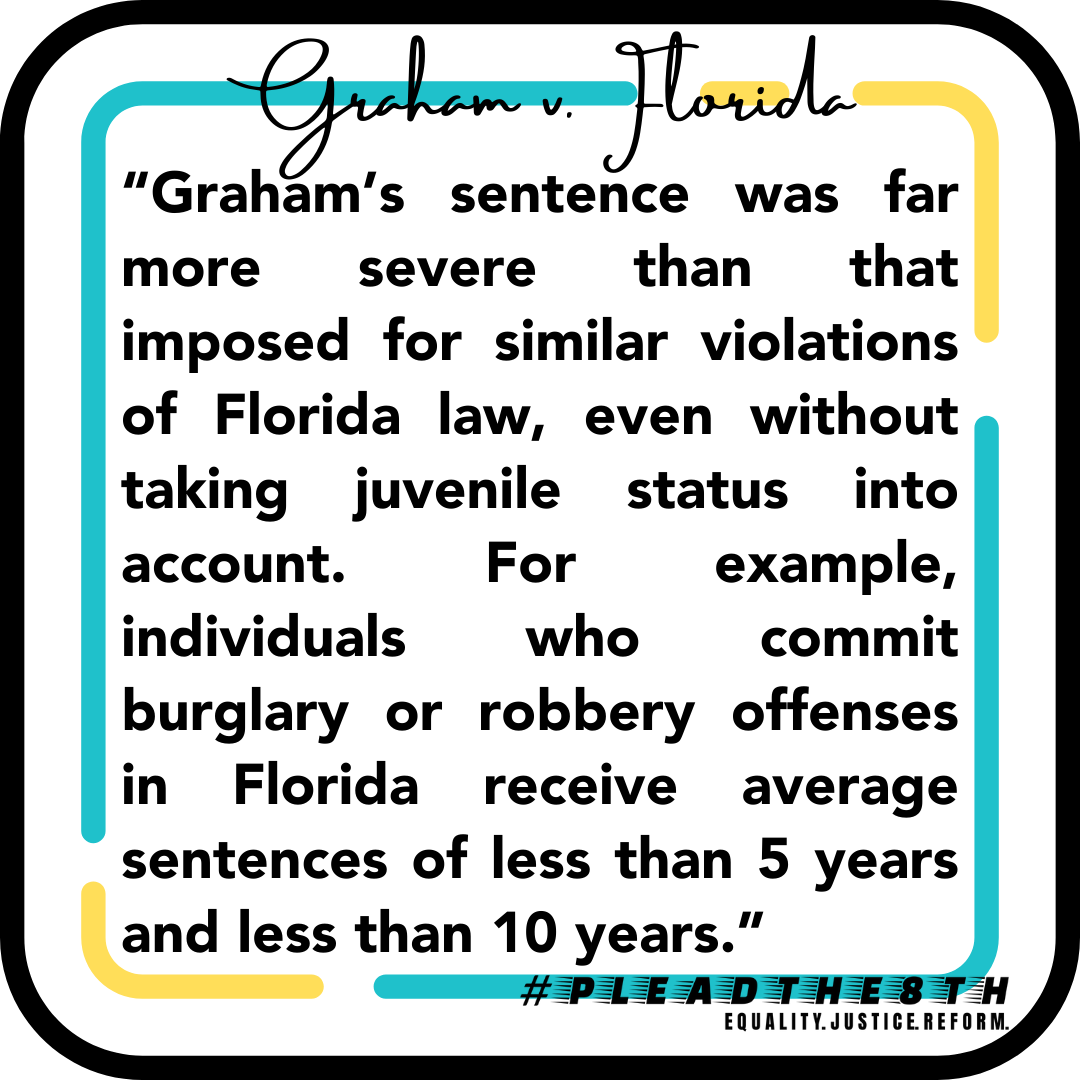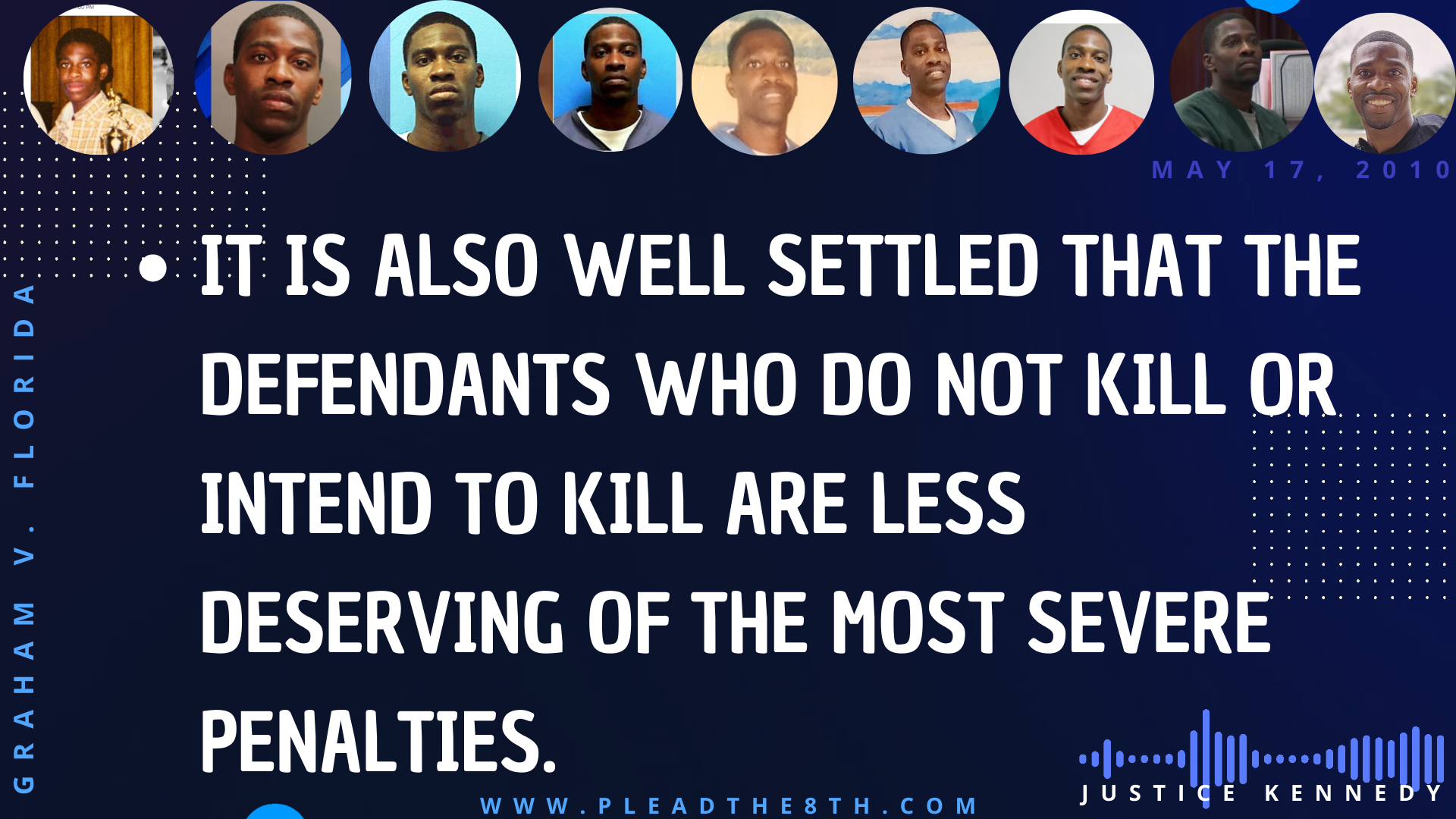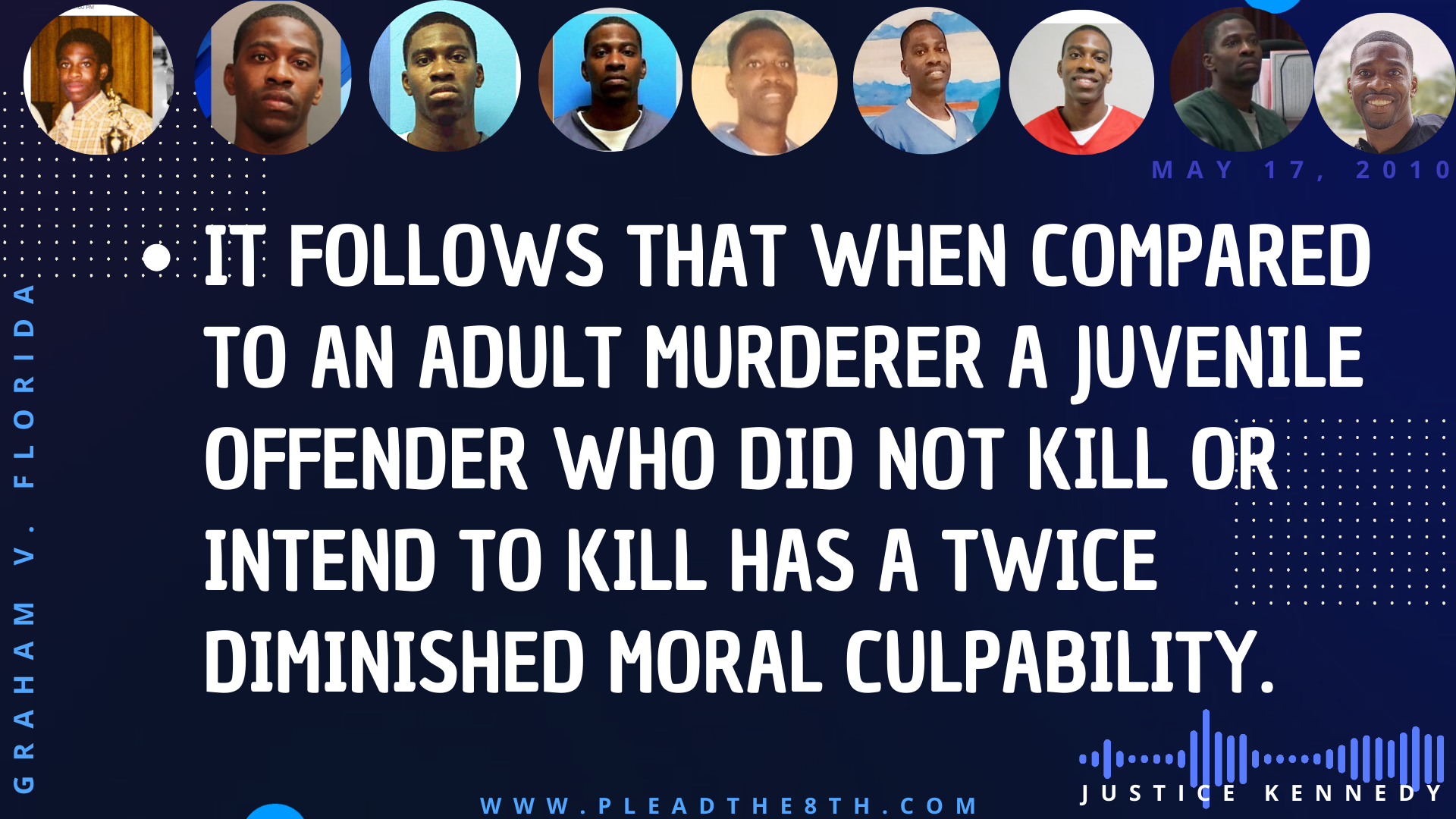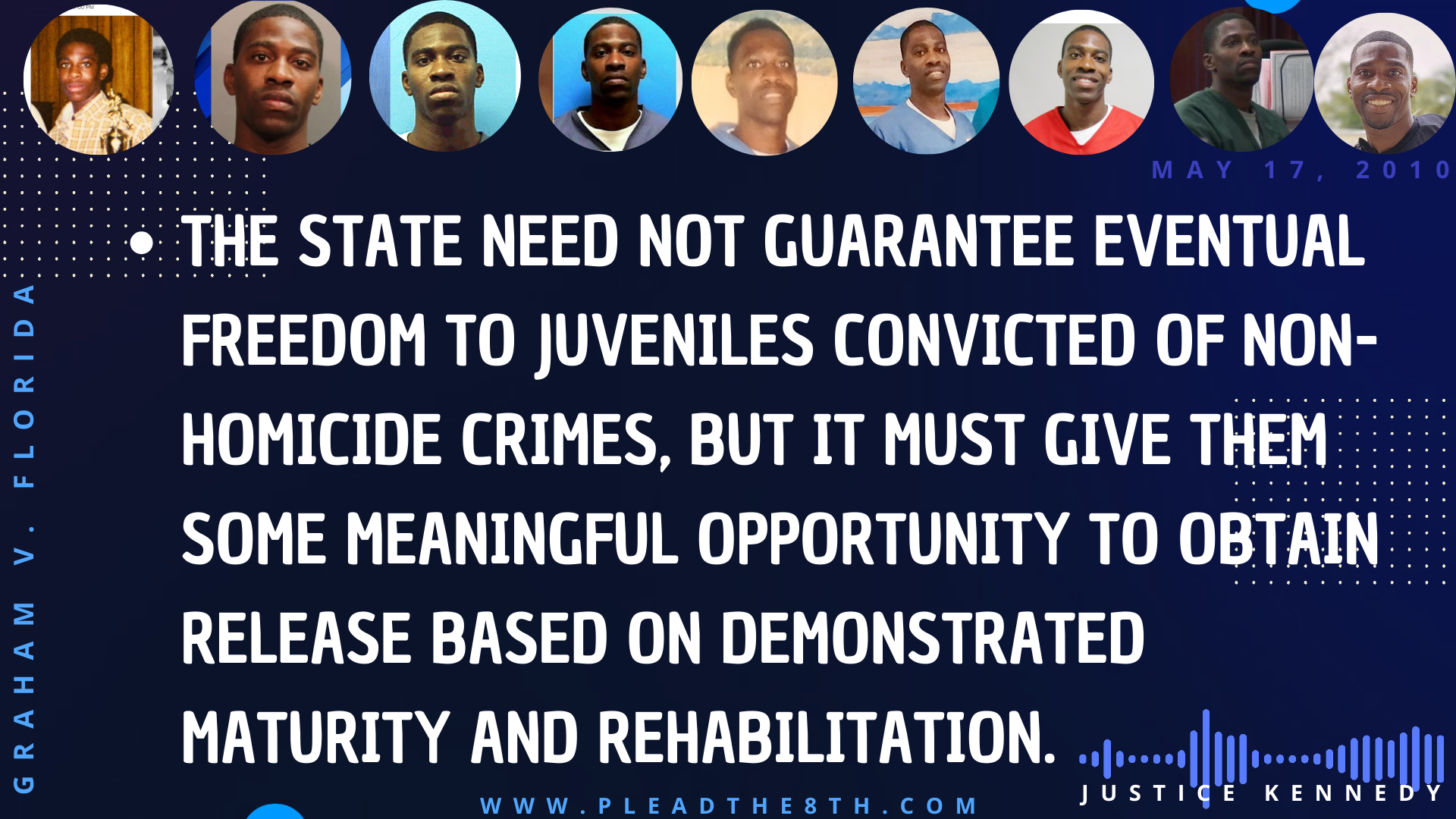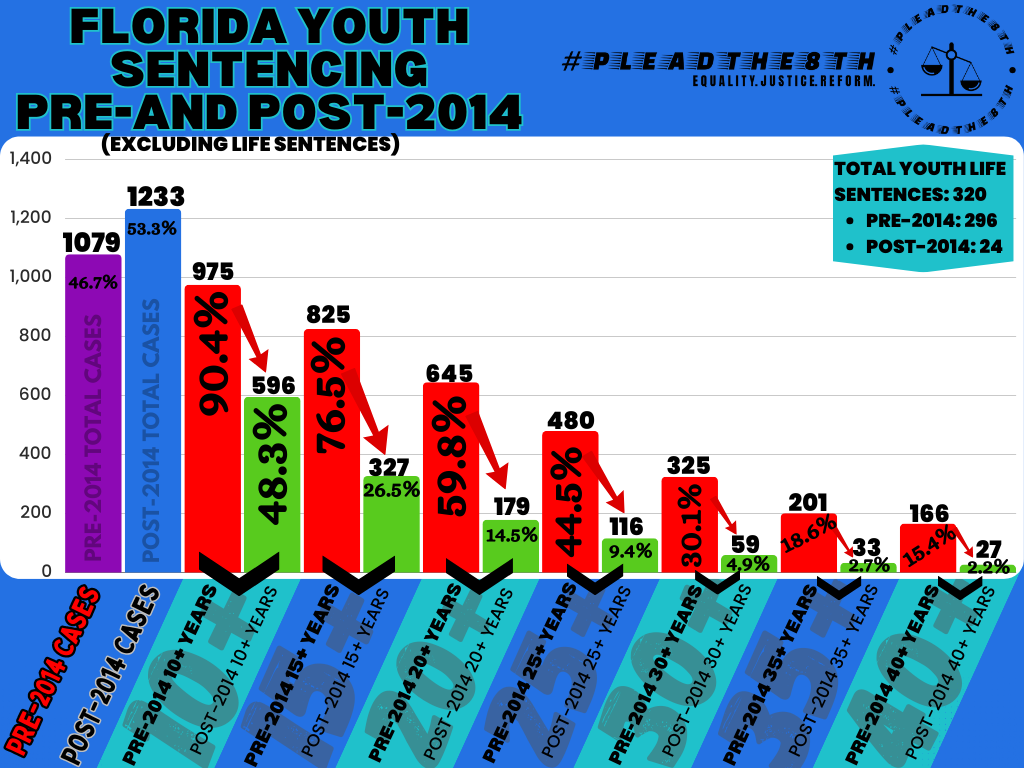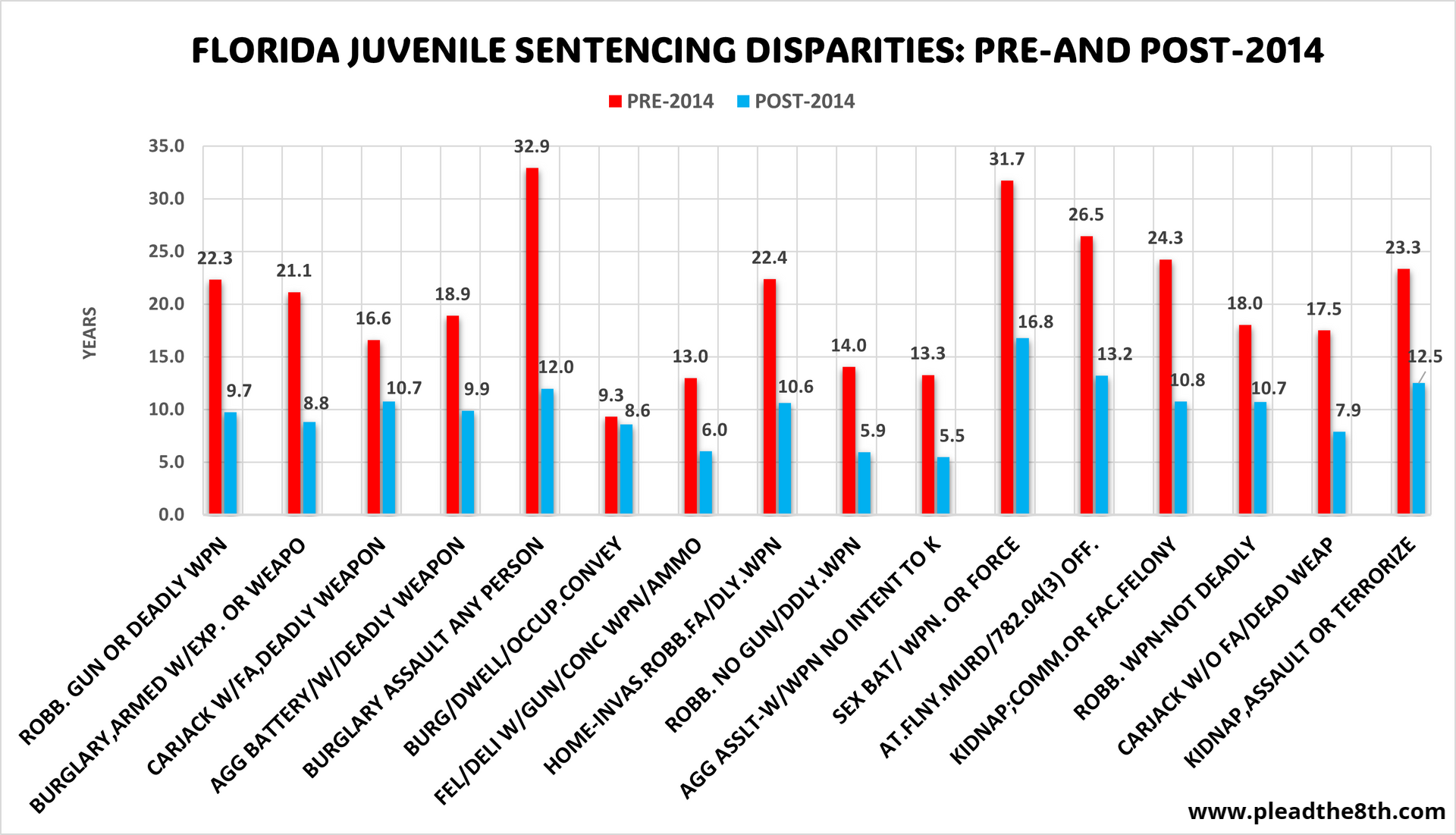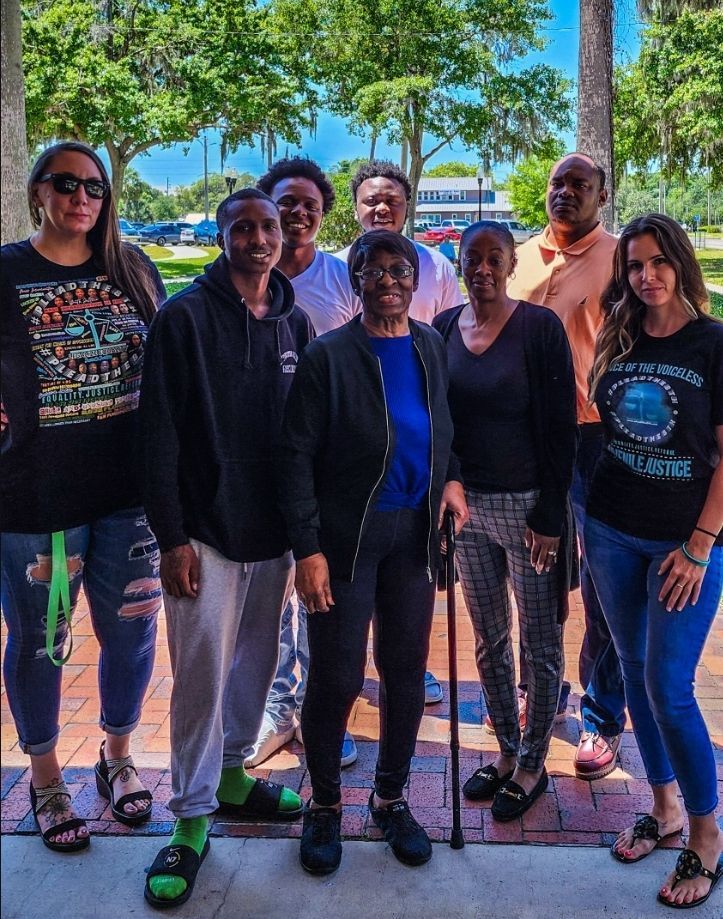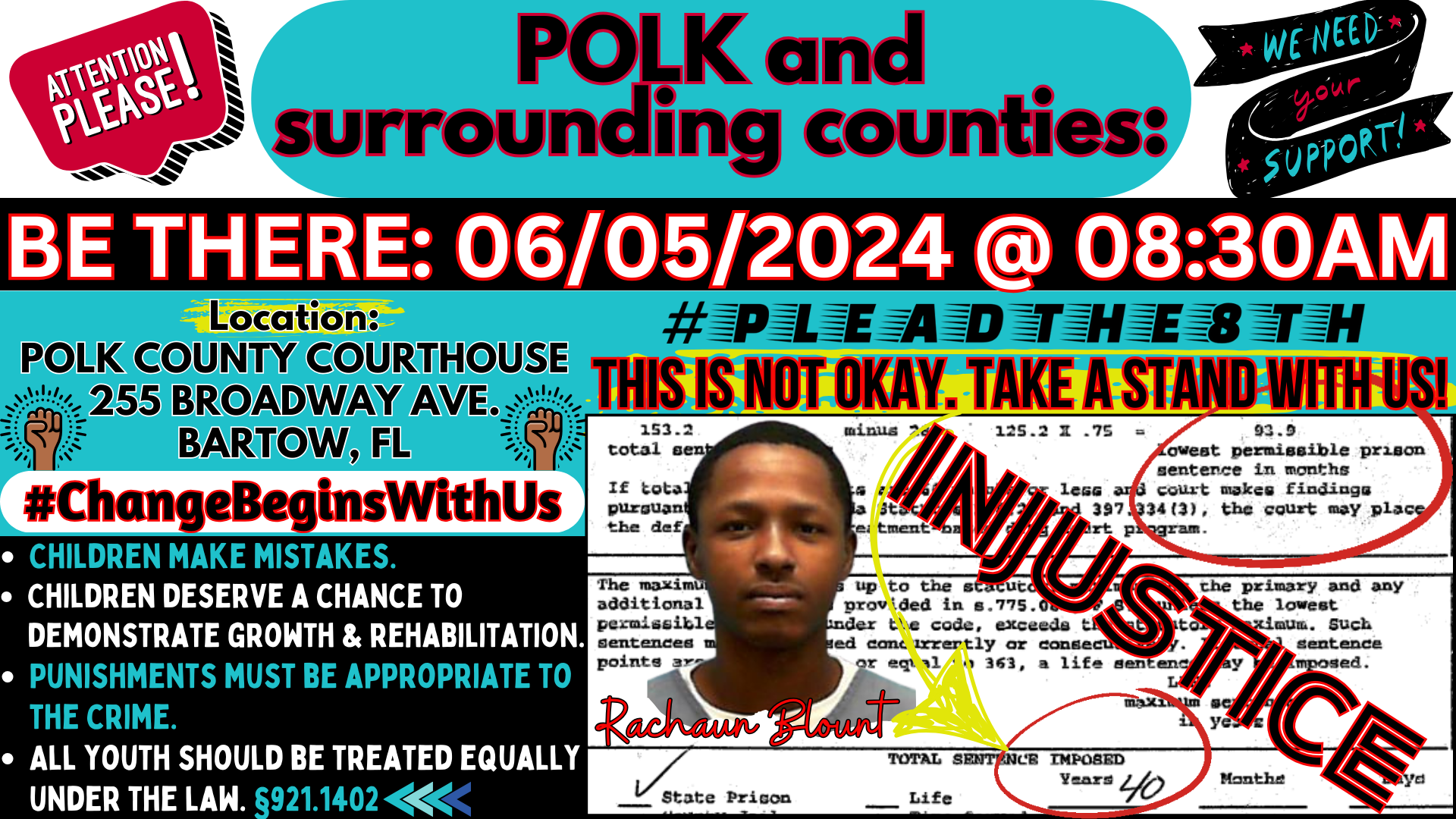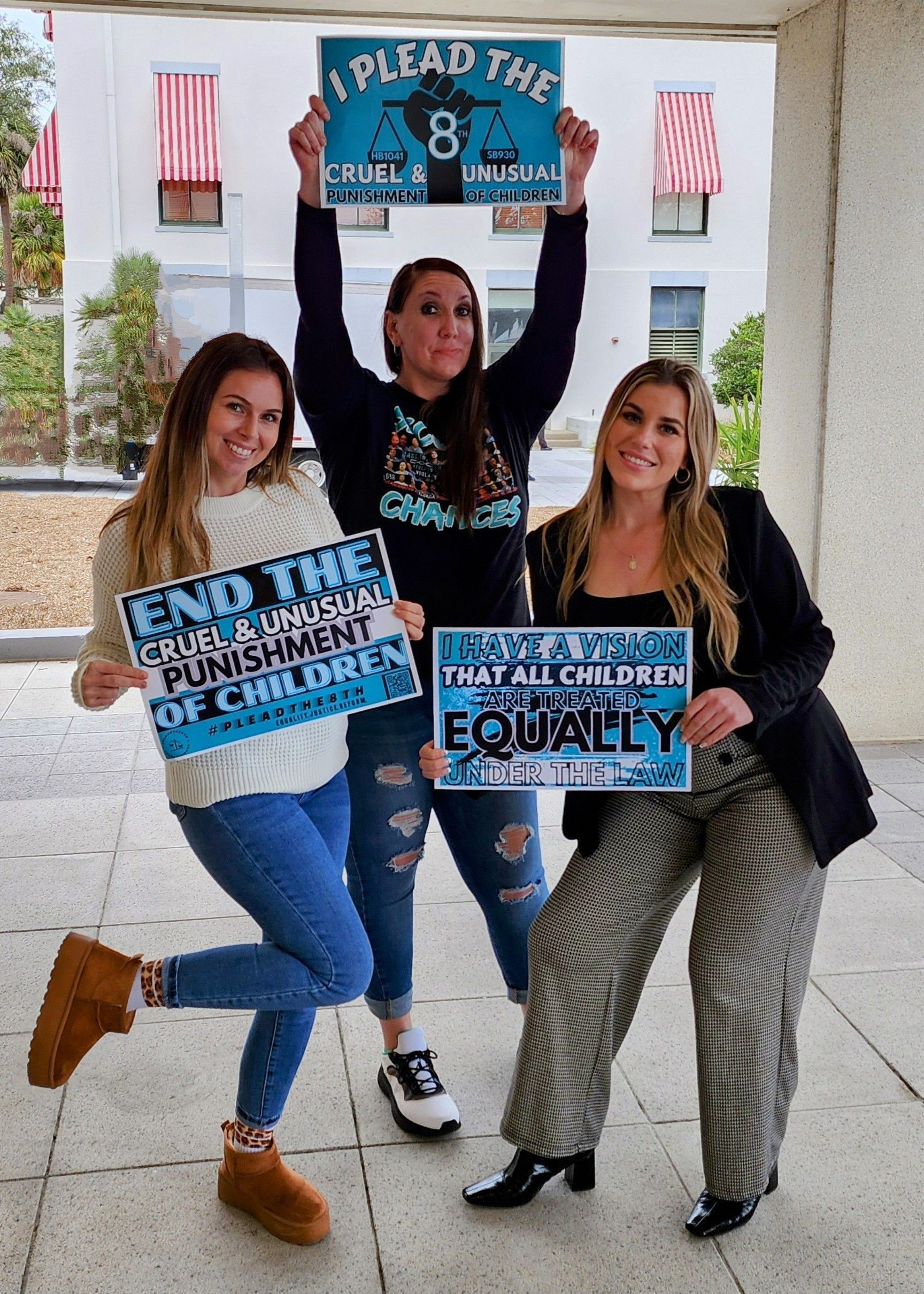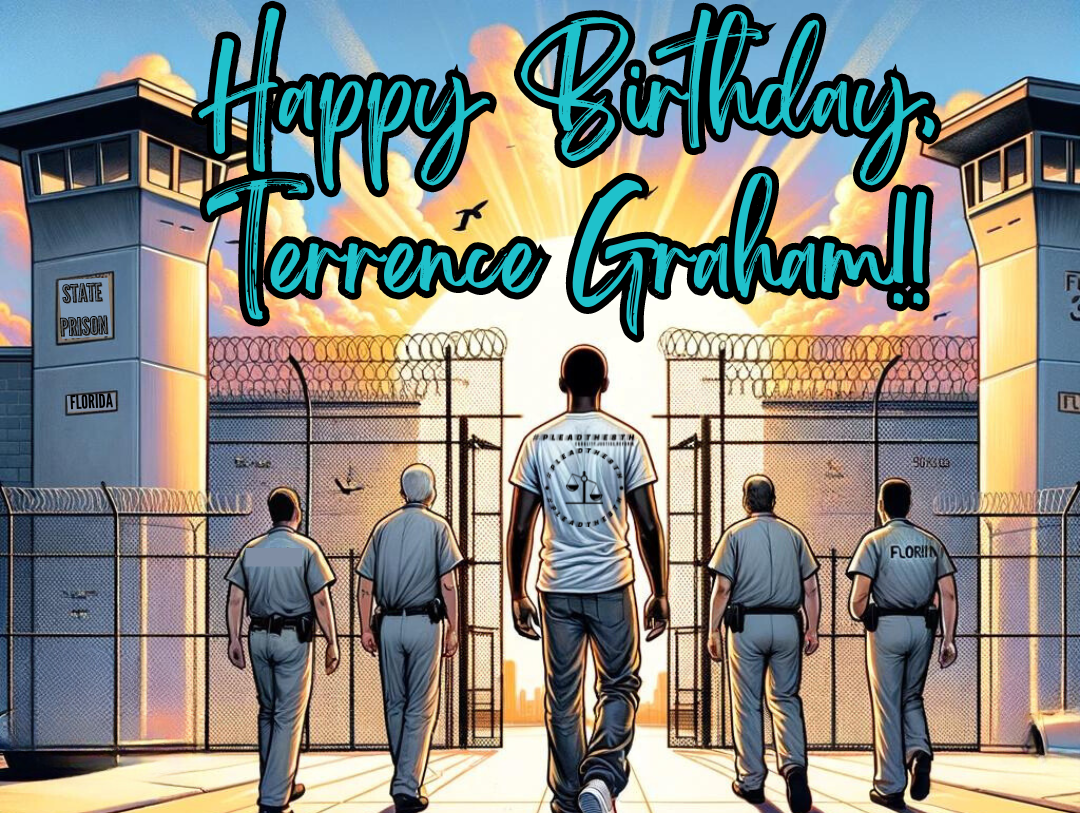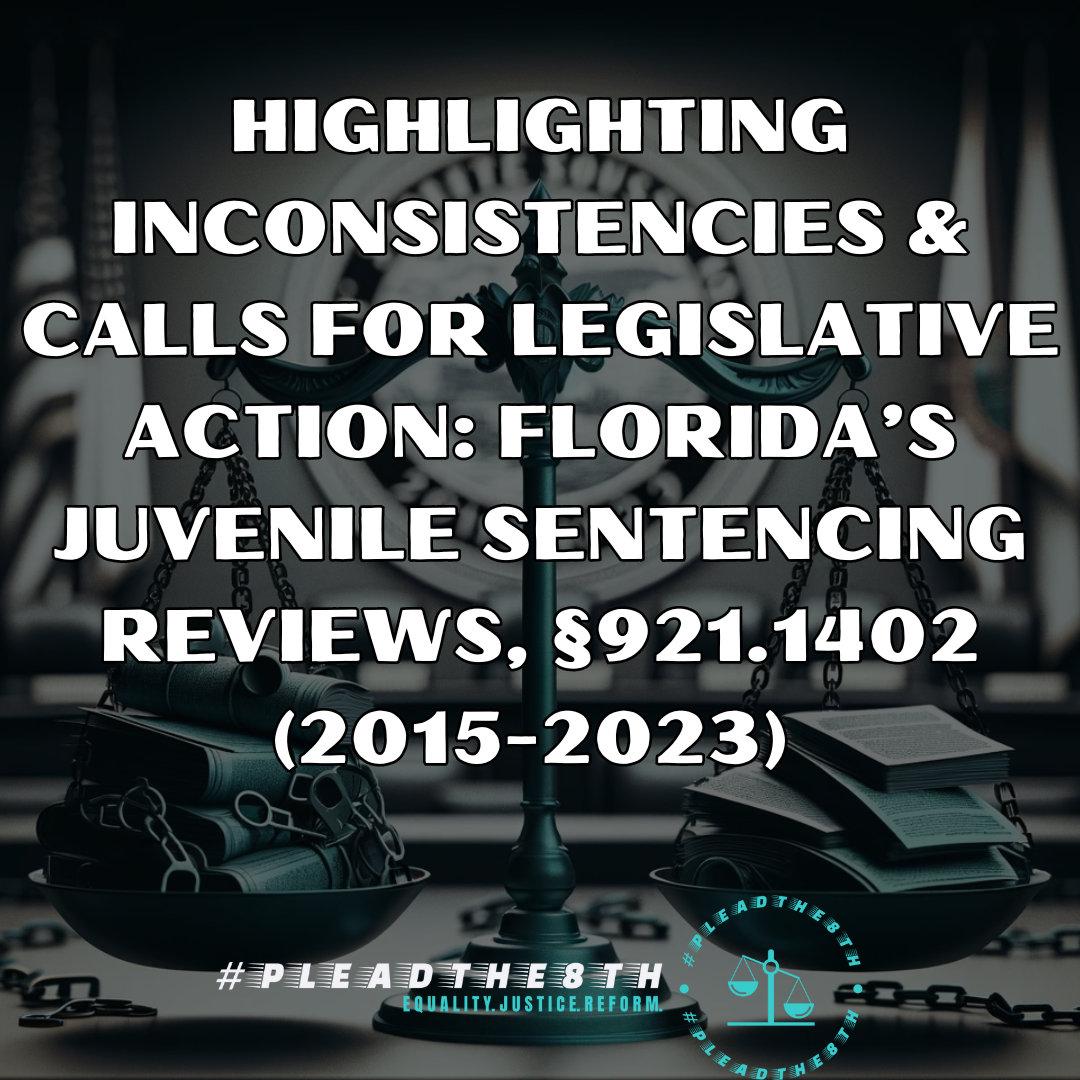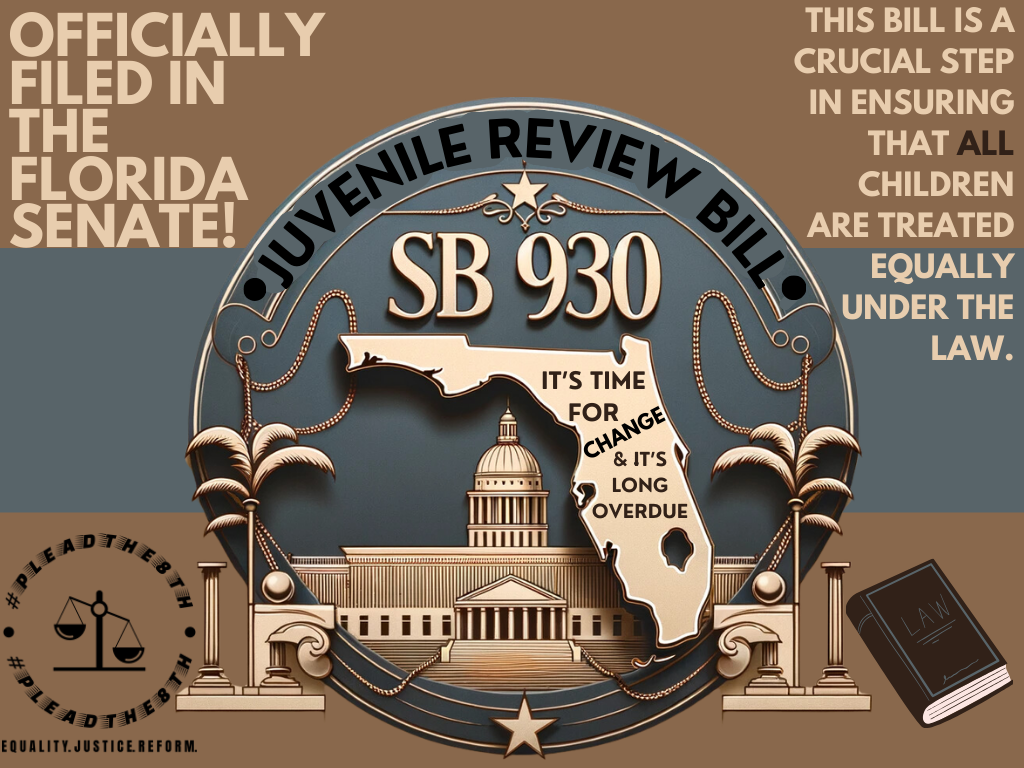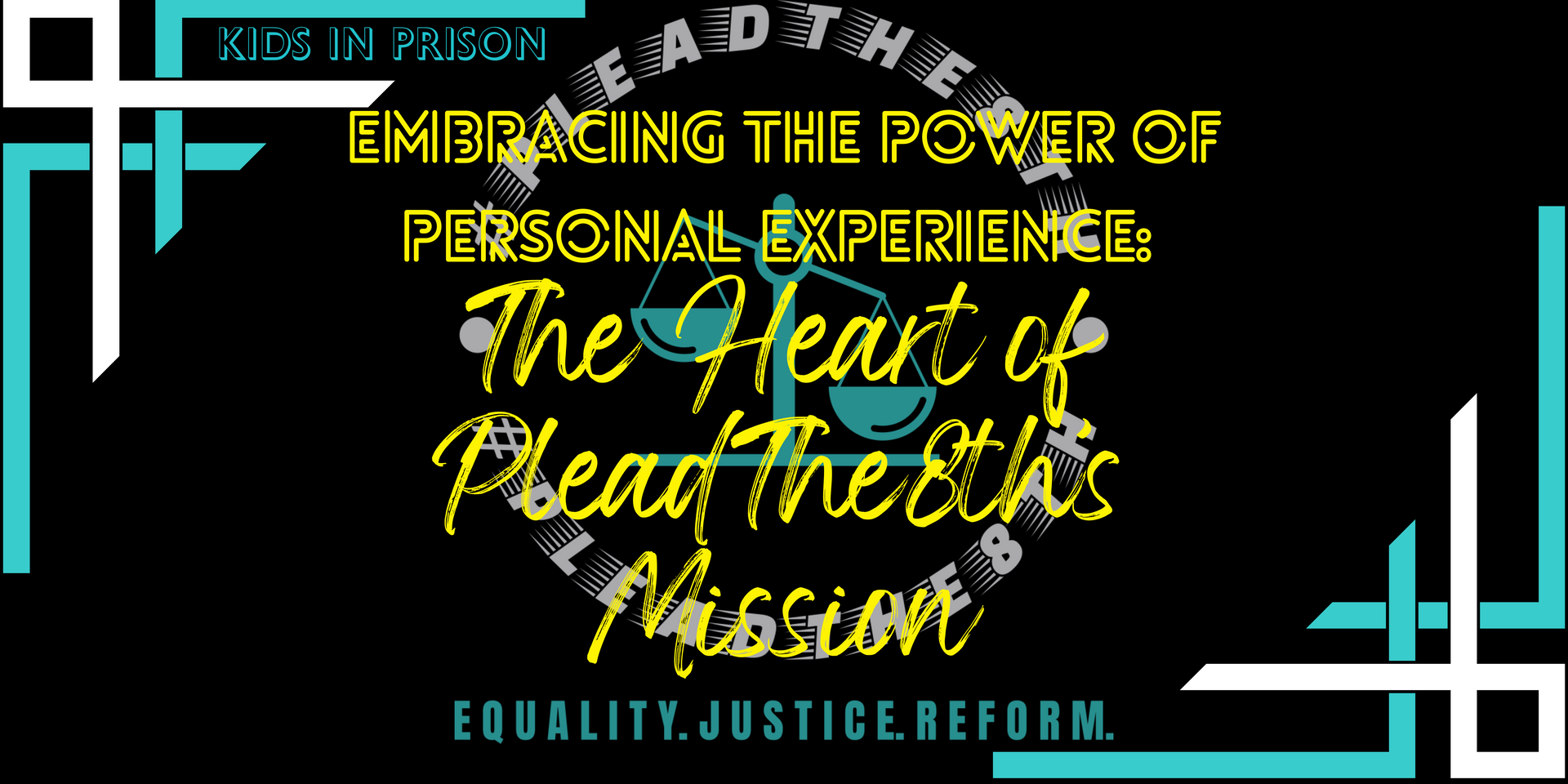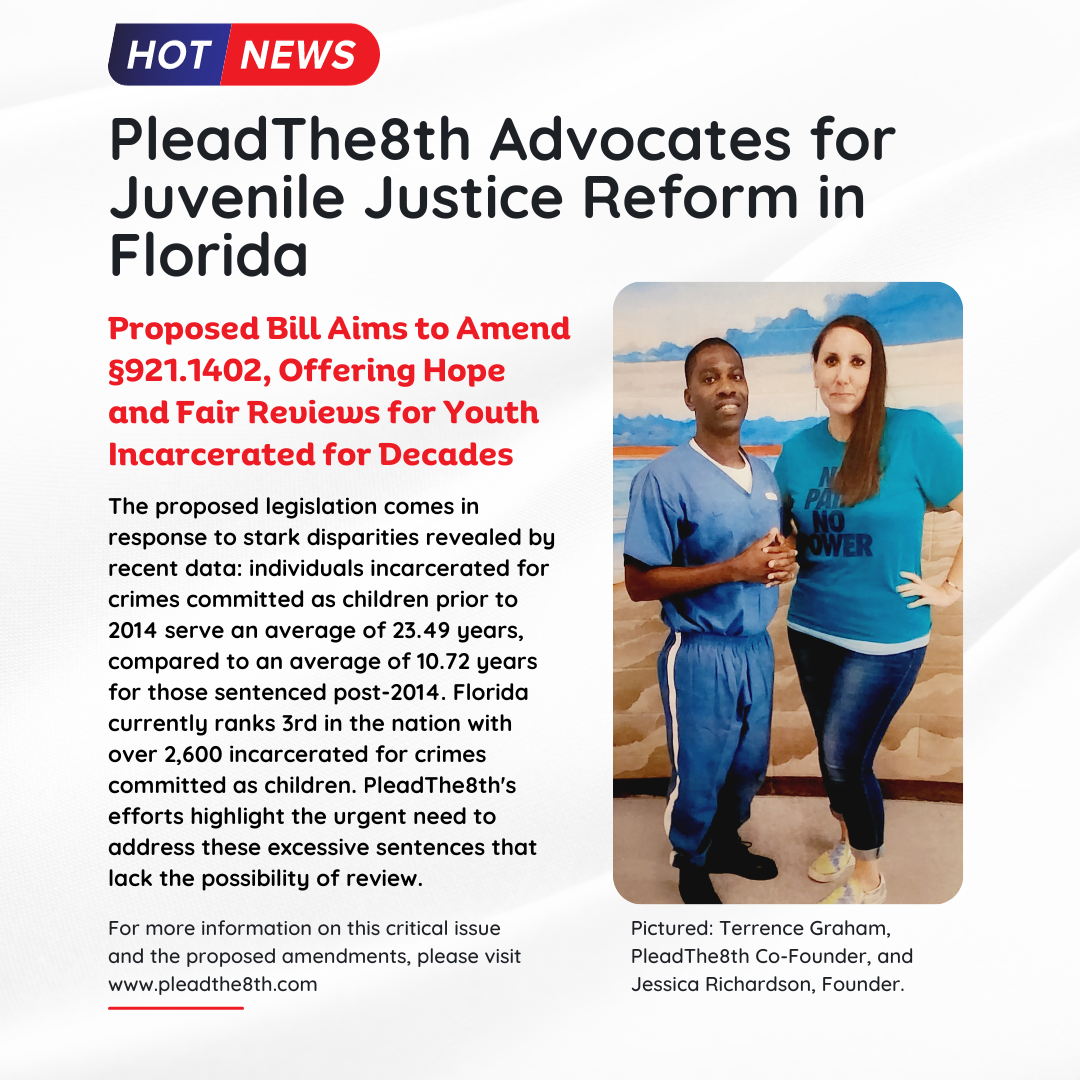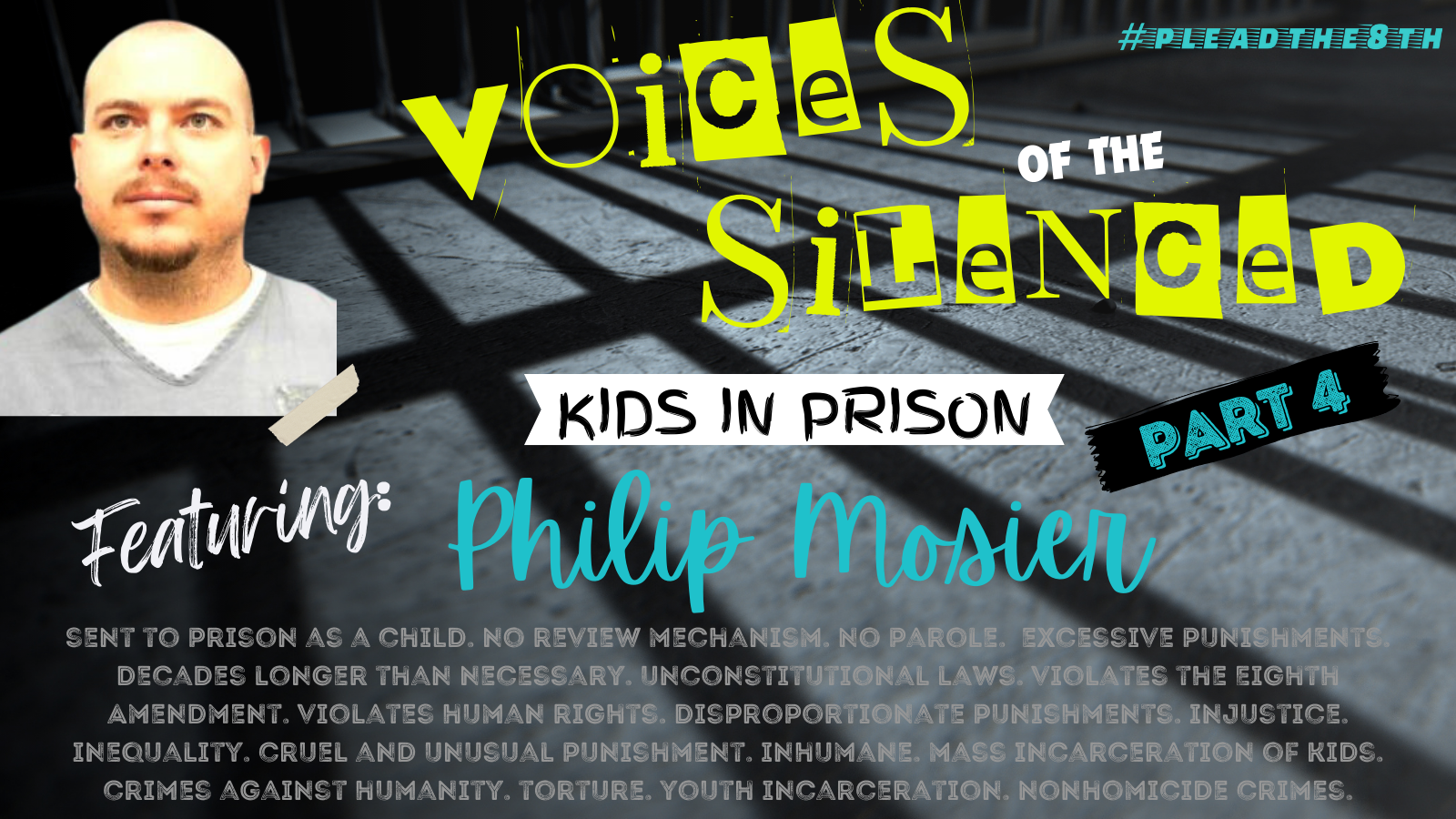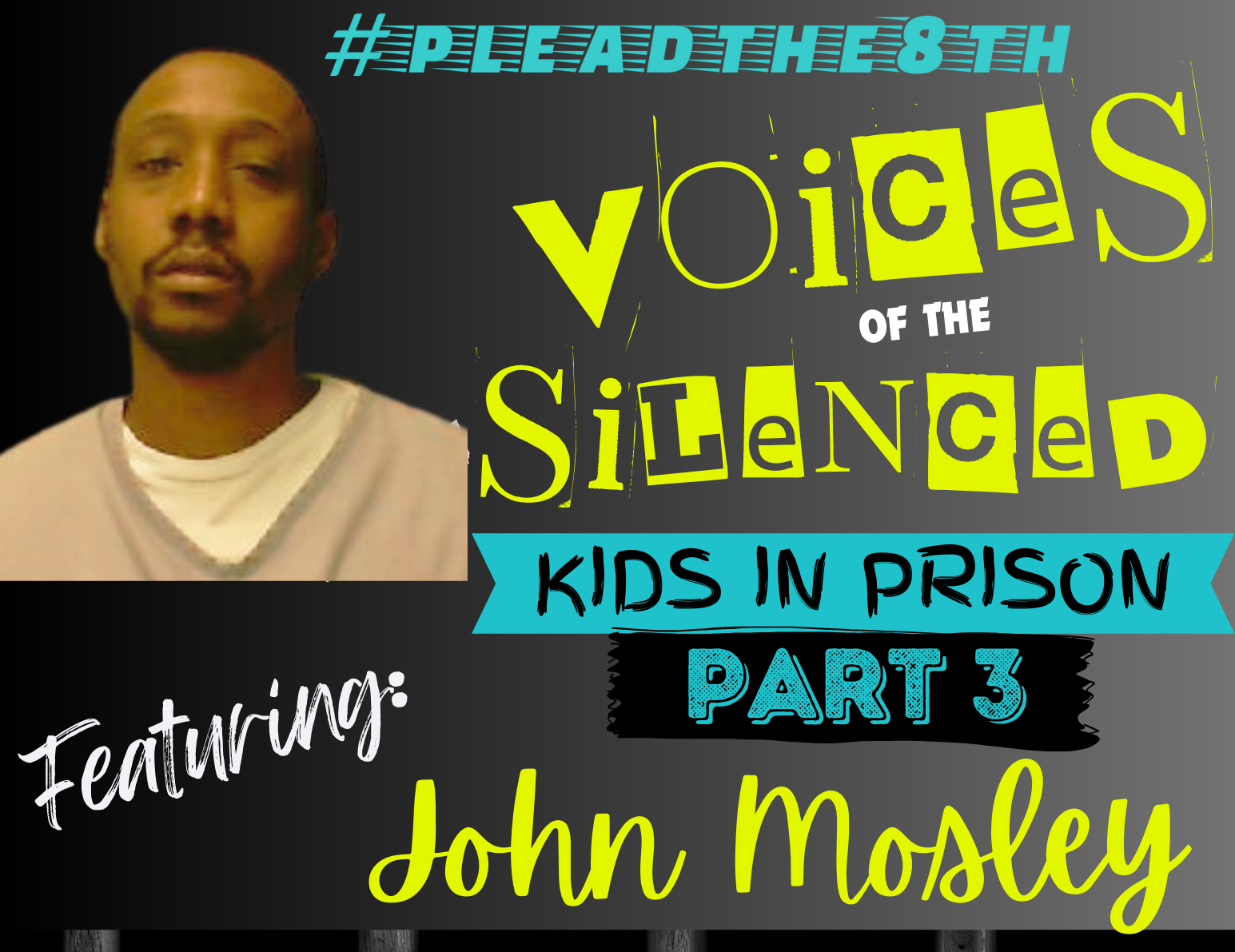Second Chance Month Calls Attention to Florida's Failure in Juvenile Sentencing Reform
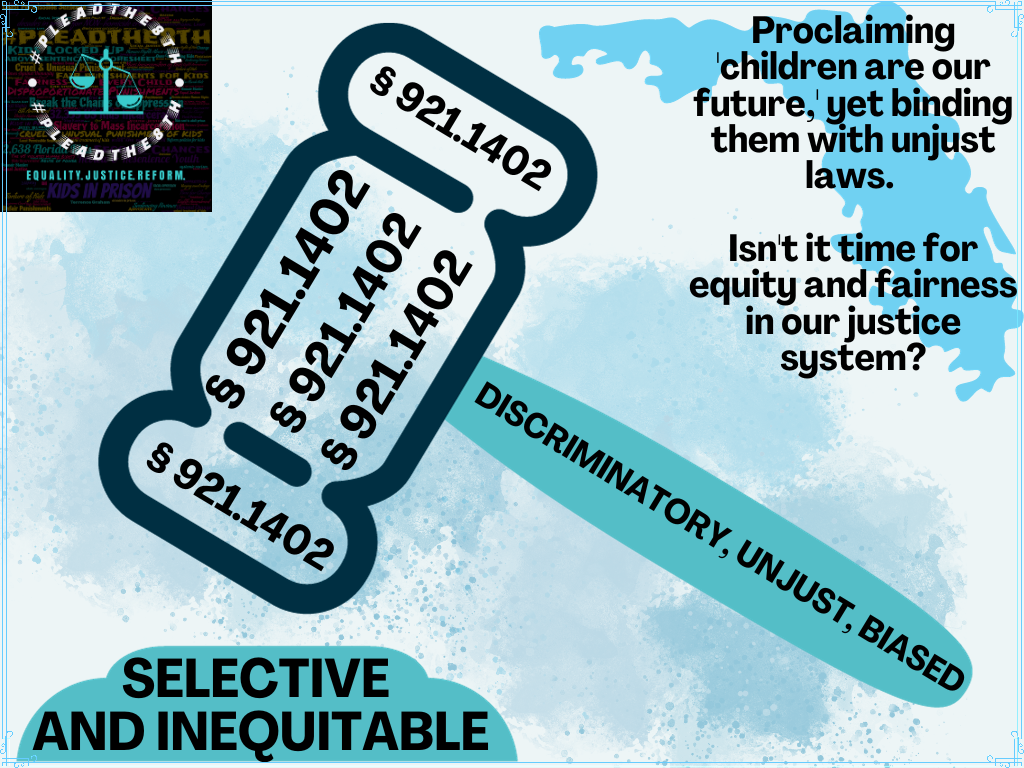
BARTOW, FL – Originally granted a resentencing opportunity in 2018, Rachaun T. Blount's chance for a fair hearing continues to be delayed, highlighting systemic failures in juvenile justice. PleadThe8th is spotlighting severe disparities in juvenile sentencing and Florida's continued failure to align with established legal standards.
Judicial Inconsistencies:
Sentenced at 16 to
40 years for a non-homicide offense, Rachaun T. Blount’s severe penalty exemplifies the draconian sentences prevalent before key Supreme Court decisions and
legislative changes in 2014. Despite statewide reforms, Florida’s practices remain
inconsistent, particularly for cases predating these changes. During "Second Chance Month," symbolizing renewal and hope, Florida continues to enforce punitive measures rooted in outdated tough-on-crime policies.
Blount’s case stands out not only due to the severity of his sentence and the dramatic discrepancy between sentencing recommendations—a suggested 7.8 years per his guidelines scoresheet and a 10-year plea deal offered initially—but also because his upcoming resentencing, now scheduled for June 5, 2024, at 8:30 AM, presents a unique opportunity. Unlike approximately 1,000 other youths sentenced before 2014 under harsh conditions and denied any chance for sentence review, Blount may have a review mechanism incorporated into his sentence. This critical distinction underscores the need for comprehensive legislative reform to address these inequities.
Supreme Court Precedents vs. Florida’s Practices:
The U.S. Supreme Court’s decisions in cases like
Miller v. Alabama and
Graham v. Florida emphasize the need for juvenile sentencing to consider potential for rehabilitation. However, Florida's inconsistent application of these principles highlights a glaring need for state-level reform.
As articulated in the oral opinion announcement for Miller v. Alabama, “And most fundamentally, those cases make clear that youth matters in determining the appropriateness of certain penalties, that the imposition of a State's most severe penalties on juvenile offenders cannot proceed as though they were not children” (Miller v. Alabama, 567 U.S. (2012), part 1 of oral opinion announcement).
Supreme Court precedents affirm that “What the State must do, however, is give defendants like Graham some meaningful opportunity to obtain release based on demonstrated maturity and rehabilitation.” (Graham v. Florida, 560 U.S. 24).
“The juvenile should not be deprived of the opportunity to achieve maturity of judgment and self-recognition of human worth and potential.” (Graham v. Florida, 560 U.S. 28).
“The Eighth Amendment’s prohibition of cruel and unusual punishment guarantees individuals the right not to be subjected to excessive sanctions” (Roper v. Simmons, 543 U.S. 560).
This foundational right is derived from the “basic precept of justice that punishment for crime should be graduated and proportioned to both the offender and the offense,” echoing the sentiments expressed in Weems v. United States (217 U.S. 349, 367 (1910)) (Miller v. Alabama, 567 U.S. 6 (2012)).
Furthermore, as articulated during the oral opinion announcement in Graham v. Florida, “the concept of cruelty in sentencing is not merely descriptive but inherently carries a moral judgment, reflecting the evolving standards of decency that mark the progress of a maturing society” (Graham v. Florida, oral opinion announcement).
Key Statistics Highlight Systemic Injustices:
Data analyzed from the Florida Department of Corrections reveal that juveniles sentenced before 2014, like Mr. Blount, face an average sentence exceeding 21 years, compared to just 9.7 years for those sentenced afterward. This 12-year discrepancy highlights a punitive approach out of step with current understandings of juvenile rehabilitation.
Notably, of the 401 robbery cases, only 38 juveniles received sentences of 40 years or more, all sentenced pre-2014, showcasing a severe misalignment with today’s standards.
This trend of declining sentences is consistent across all offense categories. Specifically, overall sentencing averages pre-2014 come in at over 23 years, while post-2014 they drop to just 10.7 years.
- 90.4% of pre-2014 youth received sentences of 10 or more years, compared to just 48.3% post-2014.
- 76.5% of pre-2014 youth received 15 or more years, compared to only 26.5% after 2014.
- 59.8% of pre-2014 youth received 20 or more years, while only 14.5% after 2014 faced such lengthy sentences.
This data aligns with Supreme Court precedent that, “If more serious crimes are subject to the same penalty, or to less serious penalties, that is some indication that the punishment at issue may be excessive” (Graham v. Florida, 560 U.S. 9, citing Solem v. United States, 463 U.S. 291).
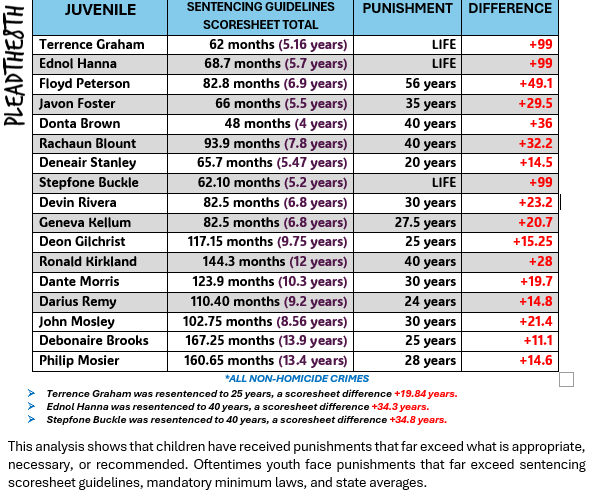
PleadThe8th's Stance:
“It’s ‘Second Chance Month,’ yet Florida seems to have missed the memo when it comes to our children,” said Jessica Richardson, Founder of PleadThe8th. “Children like Mr. Blount are locked up for decades longer than necessary, deprived of the opportunity to show they've grown. Meanwhile, newer cases receive sentences that reflect an understanding of what justice should be and are afforded the right to show they’ve changed. This is not just a failure of law; it’s a failure of morality and justice.”
PleadThe8th urges immediate legislative action to reform Florida’s
juvenile sentencing laws, advocating for uniform application of review mechanisms that align with
Supreme Court directives. This reform is essential for ensuring all children can demonstrate their rehabilitation and readiness to rejoin society.
Event Attendance Call-to-Action:
PleadThe8th invites the public to support fair treatment under the law and oppose excessive punishments for children by attending Blount’s hearing on June 5th, 2024, or the hearing in Manatee County on May 8th, 2024. Your presence will signal community support for our youth and press for needed legal reforms.
Support the Cause: Visit Our Fundraiser!
As we continue to fight for juvenile justice reform, you can show your support by visiting our fundraiser and grabbing some PleadThe8th gear. Whether it's for an upcoming hearing or to raise awareness in your community, your support helps us keep pushing for change. Check out the
PleadThe8th Justice Gear Fundraiser now and make a difference!
UPCOMING HEARINGS FOR YOUTH JUSTICE REFORM:
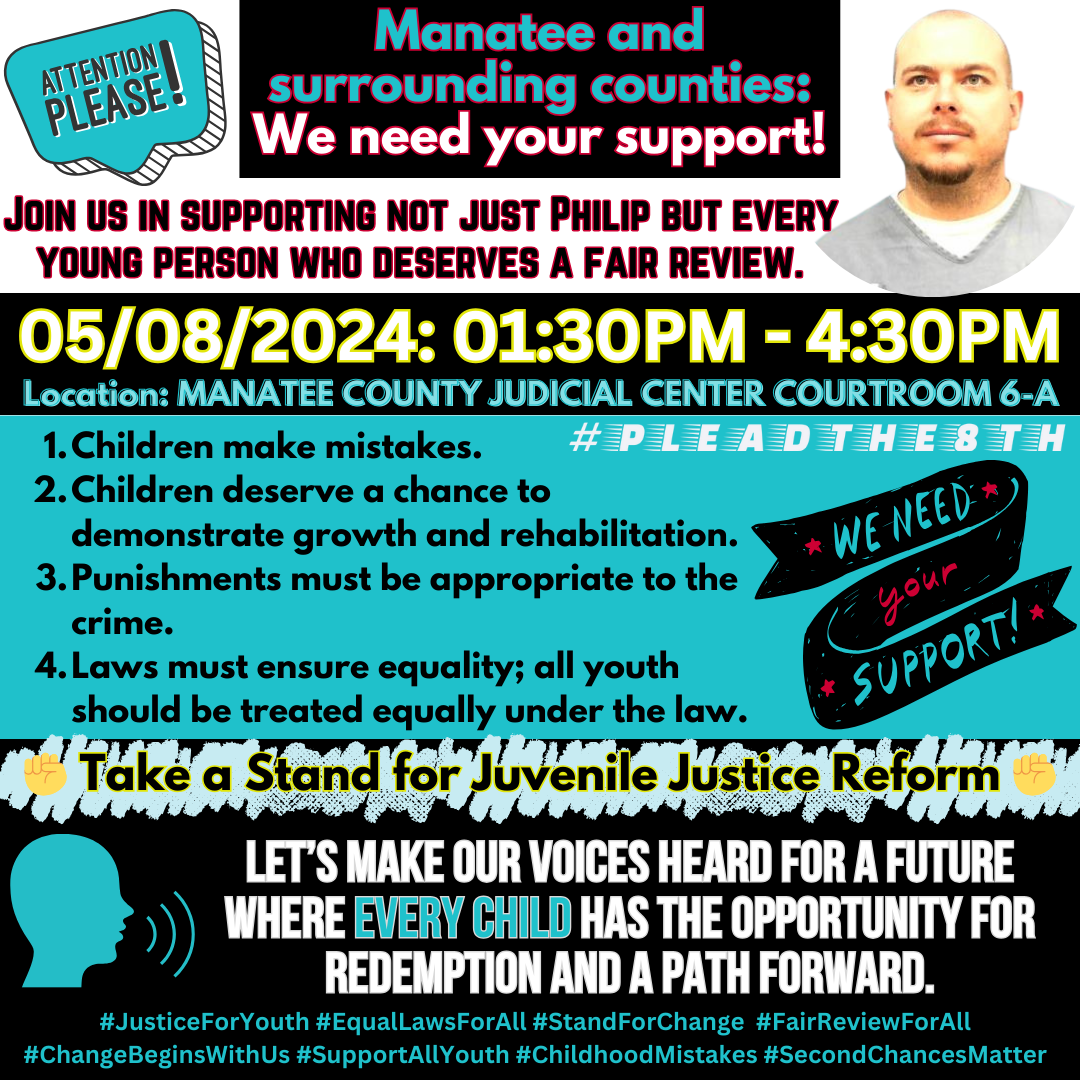
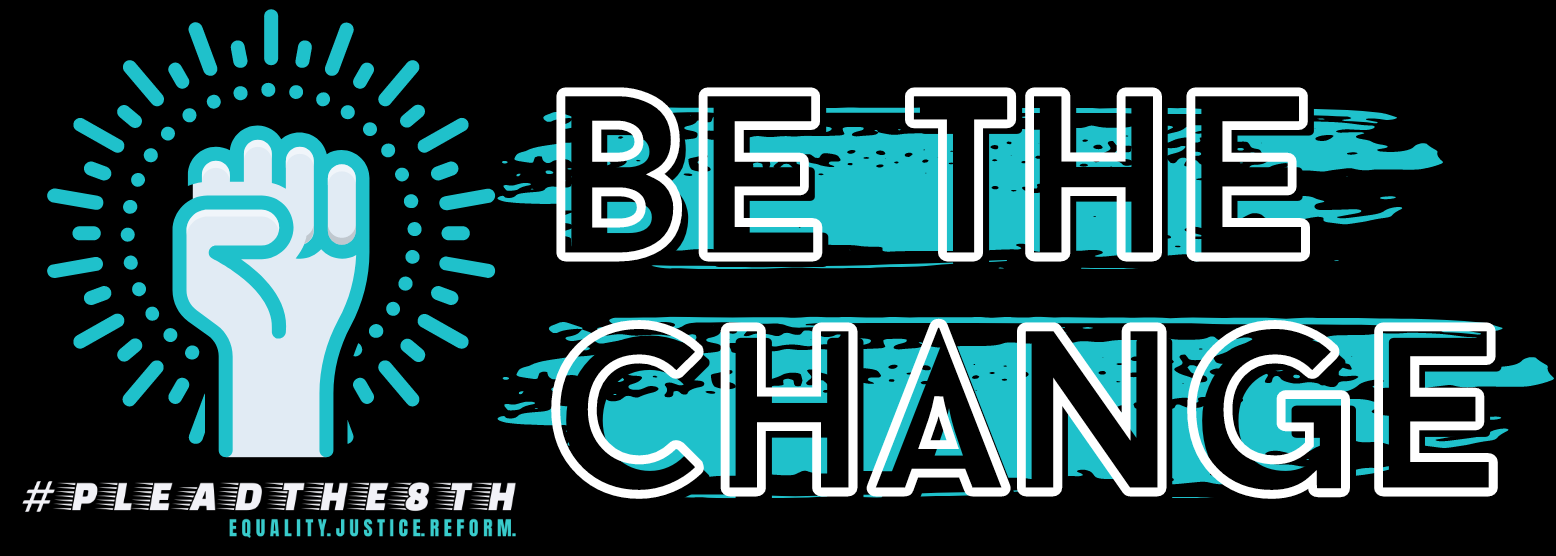
Leave us a comment.
Voices of the Silenced:

"I would love to help with this cause anyway I can. I have met some good guys behind these walls, many like me that have spent their childhood and most of their adulthood behind these walls."
-Kenneth Burden
"I accepted a plea deal for a 40 year cap believing I was going to get a youthful offender sentence. I guess you know that didn't turn out as planned. At 17 years old, I was sentenced to thirty years in prison for each of my crimes followed by ten years of probation. I couldn't even comprehend that. Hell, I hadn't even been alive but for 17 years, how could I imagine spending the next thirty years of my life in prison?"
-Philip Mosier
"I've been saying for the longest , the only way to make a difference is to make such a loud noise the world can't help but listen."
-Jessy Burrows
"I wouldn't wish this journey on my worst enemy and its sad to say this place only makes you one of two ways: better or worse and with the odds stack against you. People tend to become worse because there's no type of rehabilitation in here."
Write your caption here-Deon Gilchrist
"I was sixteen the day I got arrested, not knowing nothing but thinking I knew it all. It's sad because when you live you learn (we all make mistakes) but giving teenager's double + the years they are in age doesn't allow any progress looking further in the future. "
Write your caption here-Rachaun Blount
"I am the 8th. I stand as living proof that the system can and must evolve to provide fair and proportionate justice for all."
Write your caption here– Terrence Graham, Co-founder, PleadThe8th
“It's unfair that I'm still getting punished for something that happened 20 years ago. I'm a changed man, I don't get disciplinary reports and I stay out of trouble. I'm just ready to get out and let everyone see the new me. I was 17, now I'm 37.”
Write your caption here– John Mosley
" I PRAY AND HOPE WE DO FIND A BREAKTHROUGH AND CHANGE THE LAW. I ALSO UNDERSTAND THAT THIS WON'T BE AN EASY BATTLE WE ARE FIGHTING AN LONG AND UP HILL BATTLE AND HOPE THAT WE HAVE WHAT IT TAKES TO MAKE A DIFFERENCE!"
Write your caption here-JATAVISH HARRIELL
"I have been in prison since I was 17 years old. I've been locked up for 10 years on a 45 year sentence. This applies to me. I hope you guys can get us some relief. Please keep me updated on what progress you guys make, please and thank you."
Write your caption here-Devin Rivera
"I have been in prison since I was sixteen and believe me, I know that things need to change, because people change. After all, that's what make us human."
Write your caption here-Allen Bythwood
"I am one of the many youthful offenders incarcerated in the prison system. I am interested in doing anything I can possibly do to help the movement in the strive towards justice for our youth. I thank you for everything you are doing. It's a blessing to have people finally being a voice for the ones who were silenced by the system for so long. Again, thank you."
Write your caption here-Juny Abraham
"I was 17 years old when I came into the system. I don't have no murder and no one got physically hurt in my case. I ended up with 40 years with 30 of that mandatory. I was 17 at the time of the robberies. As of now, I've been in prison longer than I was living before I came to prison. I'm hoping you can help with this law getting changed. I was railroaded and surely did not deserve so long."
Write your caption here-Ronnie Ricks
"I am incarcerated for 2 counts of armed robbery that I didn't commit, even the victim stated that the female involved was a white female. I am an African American woman. I need all the help there is to be able to get my sentence of 27.5 years overturned. I would greatly appreciate it if this movement gets going. I have already served 14 years in jail and prison altogether and I'm ready to serve my community as I go back out into society and give myself another chance. Thank you for contacting me, I really am grateful."
Write your caption here-Geneva Kellum
"Mothers and fathers have been grieving of the loss of their kids for years holding on to faith and prayers which they depend on to live with their hurt. I am now 31 years old and have been incarcerated since the age of 17. I am overwhelmed with pain from this incarceration, overwhelmed with the loss of family members, most recent loss was my father. It seems like only a few people in my family actually know I exist. I used to be mad and disappointed when I see people in America on tv and especially soical media it constantly reminded me how forgotten and overlooked this situation was. Then i realize it's not that the people didn't care, they simply didn't know, WE WERE OVERLOOKED, I was one of the juveniles sentence to life in prison and didn't kill anyone, then resentence to 50 years, sentence to the same amount or more time than an adult who did commit murder, sentence by an corrupt system. After doing over 11 years in prison, I was fortunate enough to be resentence recently leaving me with less then 8 years."
Write your caption here-Daryl Thomas
Check out our other blogs!
Kids in Prison: Voices of the Silenced. #PleadThe8th
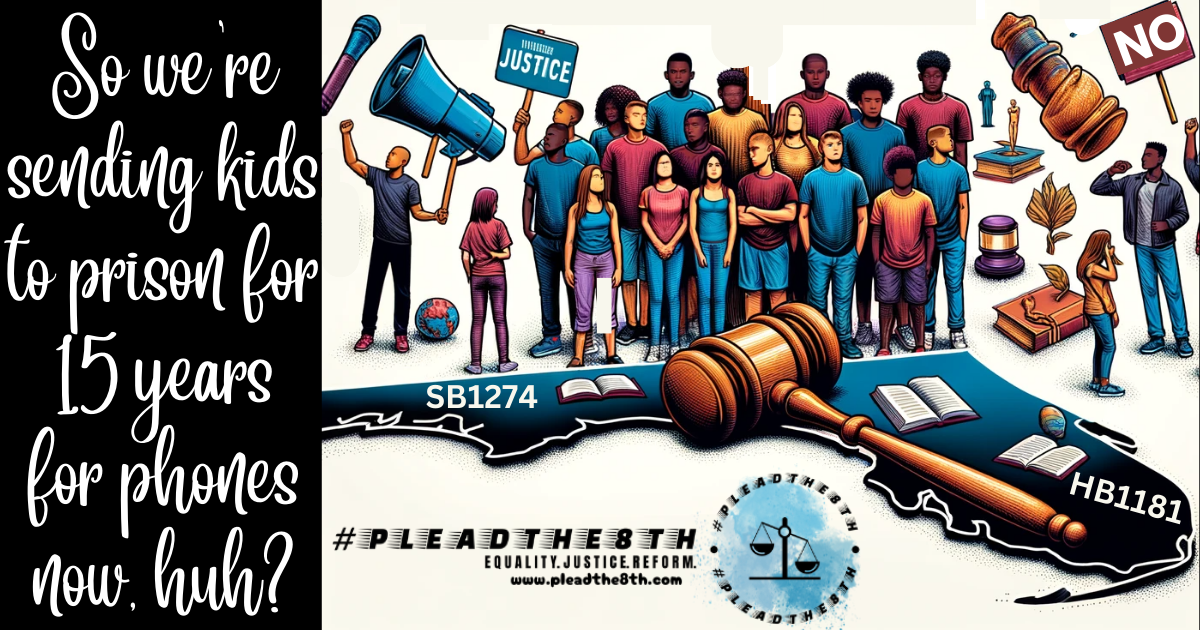
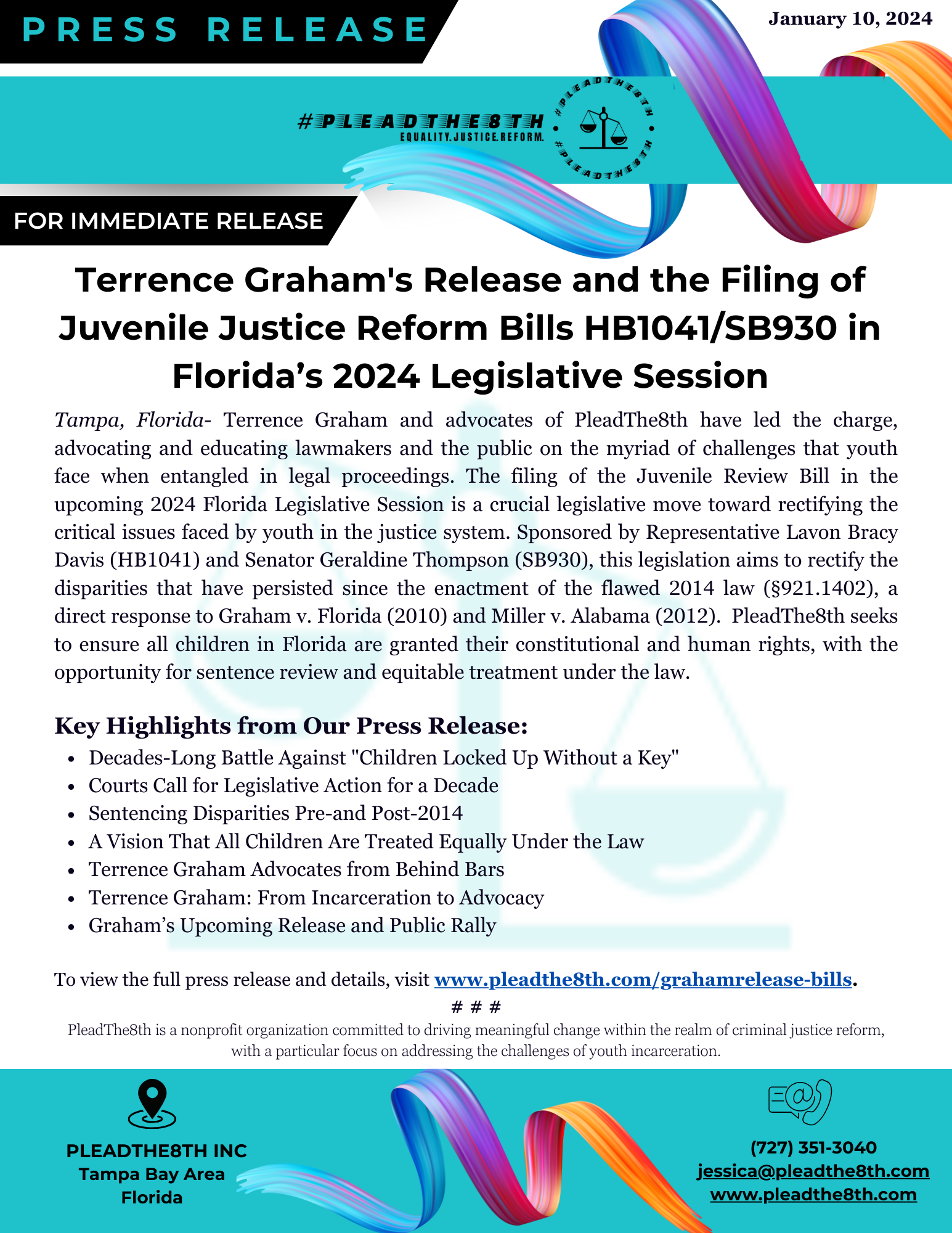
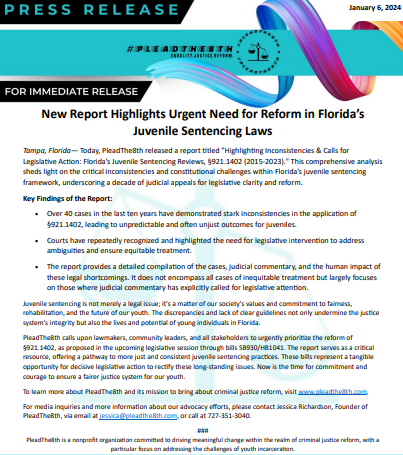
join the #pleadthe8th movement
Your Support Matters
A gift today helps us fight for kids without a voice.
Pleadthe8th
is a qualified 501(c)(3) tax-exempt organization and donations are tax-deductible to the full extent allowed under the law.
Follow us on Social Media!
Tweet & Share to remind those in power that we demand justice and equality.
